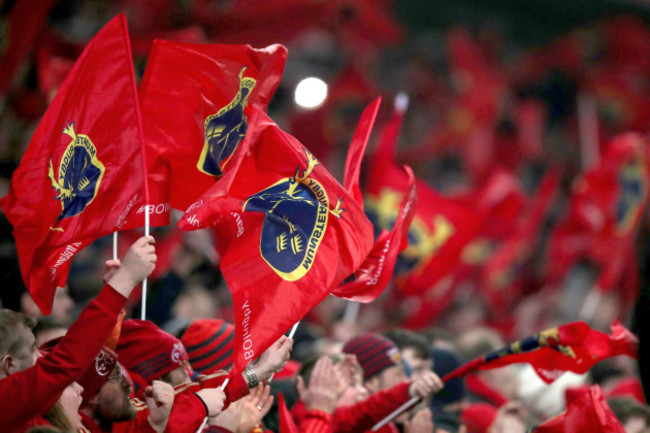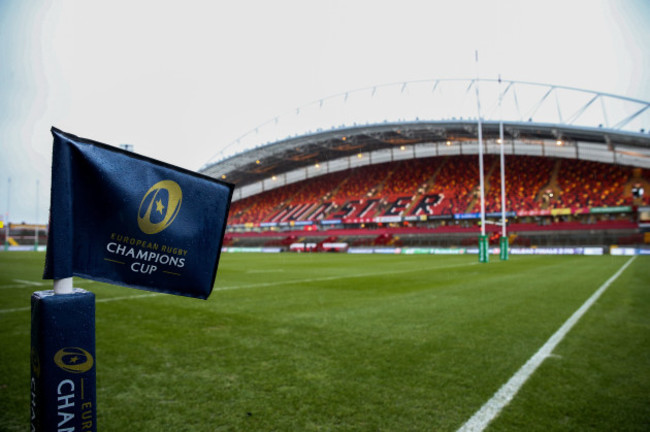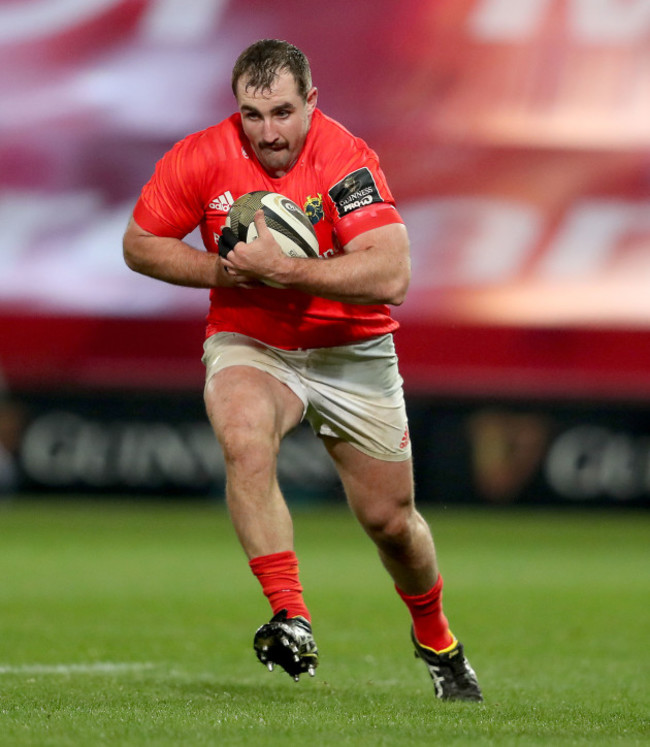MUNSTER RUGBY CEO Ian Flanagan says the province is too reliant on the revenue generated by supporters attending games, with the Covid-19 crisis having further underlined the issue.
With rugby games in Ireland on hold since March and only due to return in August – potentially without supporters in stadiums at first – Irish rugby has faced a challenging time without matchday revenue of any kind.
Flanagan insisted that Munster are not experiencing more serious financial pressures than the three other provinces but he did state that the southern province need to explore new methods of making money aside from matchday revenue.
The IRFU placed all staff and players on pay deferrals when rugby was put on hold but those deferrals conclude at the end of this month, when all non-playing staff will take a 20% pay cut and move to four-day working weeks.
Professional players could be facing permanent pay cuts too, although the IRFU and Rugby Players Ireland are currently at odds over the scale of those potential reductions in salary.
Regardless of the outcome in that case, Flanagan – who joined Munster last September – believes the Irish game is too reliant on matchday income.
Munster Rugby launched a ‘High Performance Leadership Programme’ in 2018, while the province also engaged in a partnership with an Irish esports team this year with a view to potential commercial opportunities in the future.
“It’s a big part of our strategic plan,” said Flanagan of how Munster aim to recoup the revenue losses caused by Covid-19.
“We’ve identified clear areas where we would look to grow the commercial revenues and more importantly diversify the revenue streams of Munster.
“I think we’re overly reliant on matchday income and that probably is a common scenario at a number of other clubs.
“And what this period has proven is that an over reliance on matchday revenue in this time where you can’t play games and get people in stadiums is extremely damaging to the revenues.
“We have to, as best we can, find other ways of generating income and growing the revenue base.
“So, it is a big strategic avenue for us and we’ve put a lot of time and thought into it in advance of the pandemic.
“Some of our plans may be delayed but we’re looking to move on with them even in the midst of this.”
The issue of selling the naming rights for Thomond Park has been discussed for well over 10 years at this stage, but Flanagan said no progress has been made in that regard.
“Look, it’s undeniably going to be a tough commercial marketplace out there for the foreseeable future.
“I don’t think any company has been unaffected by this but naming rights to Thomond Park is one of the things on the table, it’s one of the things we’re exploring at the moment.
“It’s one of the things we’re actively investigating but there’s nothing to report in that space yet.”
Meanwhile, Flanagan confirmed that Munster have met Sport Ireland in the wake of James Cronin’s one-month anti-doping ban.
Flanagan said that Munster’s own review of the case has led them towards the implementation of additional “safeguards” regarding the verification process when players take medicine and also around player education with regards to doping.
“I think we carried out a very thorough process, EPCR carried out a thorough process and subsequently Munster Rugby and the IRFU carried out a review of our processes,” said Flanagan.
“Subsequently, we had an additional review meeting with Sport Ireland, with John Treacy and Dr Una May, and I think we believe we can always learn and improve. We’ve looked at additional safeguards that can be implemented.
“Ultimately, the responsibility will always fall on the player. So, it’s very much around reminding players of their own duties and responsibilities in terms of taking any medications.
“We’re seeing it as a positive in terms of highlighting the anti-doping processes and practices that are in place in insuring we have a clean sport in rugby. It’s also a reminder to all players and athletes in terms of their own responsibilities.
“James has received a doping ban and that will always be associated with him.
“I think the education piece, we’re still working on the details with EPCR in terms of when that takes place and so on but I think the key message is that in James’ case – and it’s one that will be understood by all players – is that ultimately the players have to take responsibility for what they ingest and put into their system.
“In terms of additional safeguards that we are looking to implement on the back of this, it is mainly about the verification process but also increasing the education contact with the players to reinforce that message that they have to be continuously questioning, continuously aware in this particular area.”



